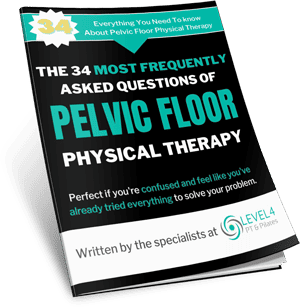In this blog, we will be discussing 5 tips if you are struggling with incontinence.
Incontinence is a condition that affects millions of people around the world and is often caused by weakened muscles or nerve damage. In most cases, incontinence can be managed with proper treatment. There are four main types of incontinence: stress incontinence, urge incontinence, overflow incontinence, and functional/secondary incontinence.
Stress incontinence occurs when physical activities such as coughing or sneezing cause leakage of urine; this type of incontinence can also be triggered by emotional situations such as laughing.
Urge incontinence is strong and sudden urges to urinate before you’re able to get to a toilet; this type of incontinence is usually caused by an overactive bladder.
Overflow incontinence is a result of the bladder not emptying completely, causing frequent dribbling of urine without any warning; this type of incontinence can be caused by blocked urethras or weak bladders.
Functional/secondary incontinence is when other conditions such as dementia make it difficult to control urinary function.
Incontinence is a common condition that can have an adverse effect on quality of life. Fortunately, it is treatable and there are various treatments available to help manage symptoms.
Treatment for incontinence should be sought as soon as possible because it can improve bladder control, reduce leakage, and allow people to live their lives without feeling embarrassed or anxious about their condition.
When seeking treatment for incontinence, it is important to talk with a doctor or health care provider who understands the condition and its many causes. Treatment typically includes lifestyle modifications such as reducing fluid intake, avoiding caffeine, exercising regularly, and maintaining good hygiene practices.
It is important to remember that treatment is available, so individuals should not hesitate to speak to a healthcare provider about their condition and find out which options may work best for them. With the right care, incontinence can be managed and even eliminated altogether.
5 Tips If You Are Struggling With Incontinence
1. Keep a healthy diet and stay hydrated: Eating healthily will help to ensure you are getting the right nutrients, vitamins and minerals that your body needs to function optimally. Staying hydrated is also important as this helps keep your bladder functioning properly and can reduce the risk of incontinence.
2. Exercise regularly: Regular exercise helps strengthen the muscles involved in urinary control which can help improve bladder control and reduce the risk of incontinence. Aim for 30 minutes or more of moderate-intensity physical activity each day.
3. Avoid bladder irritants: Certain foods, drinks, and medications may cause an increase in urgency or frequency of passing urine. Examples can include coffee, spicy food, alcoholic beverages, and citrus fruits.
4. Practice pelvic floor exercises: Pelvic floor exercises help strengthen the muscles around your bladder and can be an effective way to help manage incontinence.
5. Speak to your doctor: If you are struggling with incontinence it is important to speak to your doctor as soon as possible so that they can diagnose any underlying cause and offer treatment options if needed.
We Can Help With Incontinence
When it comes to incontinence, seeing a pelvic floor specialist right away can be very beneficial. Pelvic floor specialists are highly trained healthcare professionals who specialize in the diagnosis and treatment of disorders affecting the muscles and tissues that support the bladder, uterus, rectum and small intestine. They can help identify the cause of your incontinence as well as develop an individualized treatment plan that is tailored to meet your specific needs.
Common treatments for urinary incontinence include lifestyle modifications such as avoiding foods or drinks that may irritate the bladder, performing exercises to strengthen weak pelvic floor muscles, using bladder training techniques and other forms of treatment.
Exercise is an effective way to address incontinence. Regular physical activity strengthens the muscles that support the bladder and urethra, which can help reduce leakage. There are also several treatments available for incontinence, ranging from lifestyle changes to different types of exercise that help in strengthening the areas around the pelvic floor.
No matter what your individual situation is, there is likely a solution that will help you manage your condition and live a life free of embarrassment and discomfort. With the right treatment plan tailored to you, it is possible to control your incontinence and lead an active lifestyle with confidence.
Want To Know How Can Help You At LEVEL4?
At LEVEL4, we will thoroughly evaluate your pelvic floor issue- often inside 20 minutes and determine the root cause of your incontinence.
Schedule a Bladder Leakage Assessment with us at LEVEL4 PT& Pilates to see if we are right for you and to help in getting the conversation started about the best ways to treat the issue.
You can also feel free to give us a call at 760-503-4440 (We still like to talk on the phone!)
If you want more information on incontinence and want to get to the root of the issue, you can contact us or visit us at LEVEL4 PT & Pilates. Also, download our free guide, “6 Top Secrets to Solve Embarrassing Bladder Leakage & Urgency So You Don’t Have to Run to the Bathroom All the Time”.
We love to keep people in the San Diego area mobile, active, and off pain pills – let our expertise go to work for you to help you return to the activities you love. Don’t let bladder leakage stop you from enjoying life!
You can schedule a no-obligation (and free!) phone consult or visit us at our Encinitas clinic as part of your Bladder Leakage Assessment. Or just give us a call at 760-503-4440.
Until next time,
Dr. Dawn Andalon
Other Free Resources from LEVEL4 PT & Pilates…
Read Our Blog – Why Physical Therapy Can Help With Bladder Leakage
Read Our Blog – How Can I Strengthen My Pelvic Floor?
Follow Us On Social Media – Facebook, Instagram, and YouTube
- 3 Proven Ways You Can Relieve Sciatic Pain While Sleeping - September 14, 2023
- Menopause and the Impact It Can Have On Your Weight - August 4, 2023
- 5 Ways That Pilates Can Help With Back Pain - July 19, 2023


















